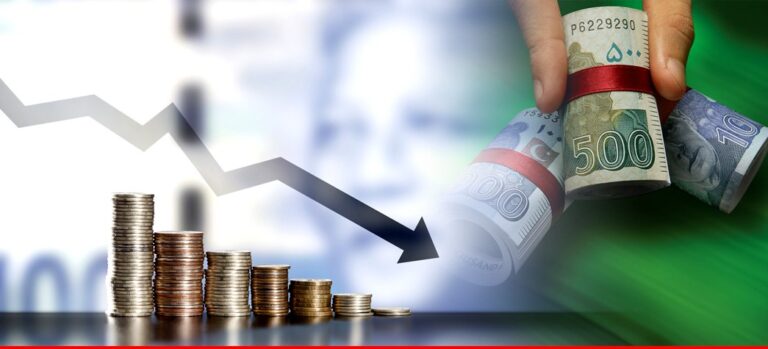What is devaluation?
Devaluation is the deliberate downward adjustment of the value of a country’s money relative to another currency or standard. It is a monetary policy tool used by countries with a fixed exchange rate or semi-fixed exchange rate.
Devaluation Strategy
By devaluing its currency, a country makes its money cheaper and boosts exports, rendering them more competitive in the global market. Conversely, foreign products become more expensive, so the demand for imports falls. Governments use devaluation to combat a trade imbalance and have exports exceed imports.
As exports increase and imports decrease, there is typically a better balance of payments as the trade deficit shrinks. A country that devalues its currency can reduce its deficit because of the greater demand for its less expensive exports.
Consequences of Devaluation
While devaluing a currency may be an option, it can have negative consequences.
- Increasing the price of imports protects domestic industries, but they may become less efficient without the pressure of competition.
- Higher exports relative to imports can also increase aggregate demand, leading to inflation.
- Manufacturers may have less incentive to cut costs because exports are cheaper, increasing the cost of products and services over time.
How does devaluation affect businesses
- Higher exports relative to imports can also increase aggregate demand, leading to inflation. Manufacturers may have less incentive to cut costs because exports are cheaper, increasing the cost of products and services over time.
- By devaluing its currency, a country makes its money cheaper and boosts exports, rendering them more competitive in the global market. Conversely, foreign products become more expensive, so the demand for imports falls.
- On its business firms- Due to the devaluation of the nation’s currency, the other currencies become expensive as compared to the domestic currency. This results in a rise in the price of imports, which leads to an increase in the demand for domestic goods. Hence business people might fail to operate their businesses.
- Small-scale businesses will have to spend more money to buy goods and services from other countries. This can result in inflation, low patronage of goods and services and a resultant collapse of small and medium businesses.






